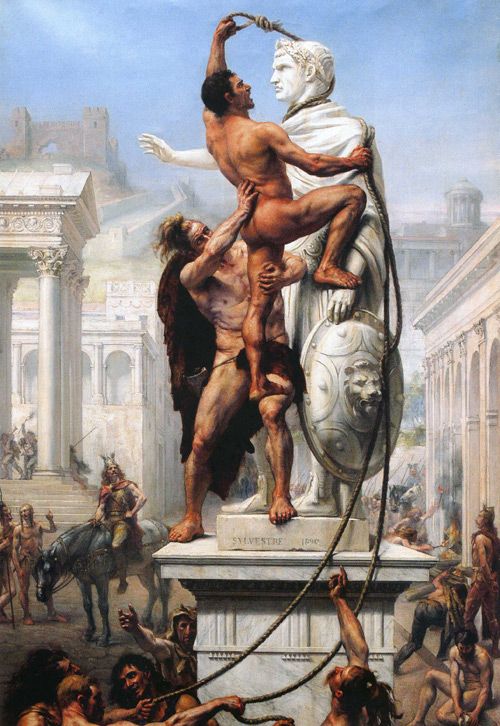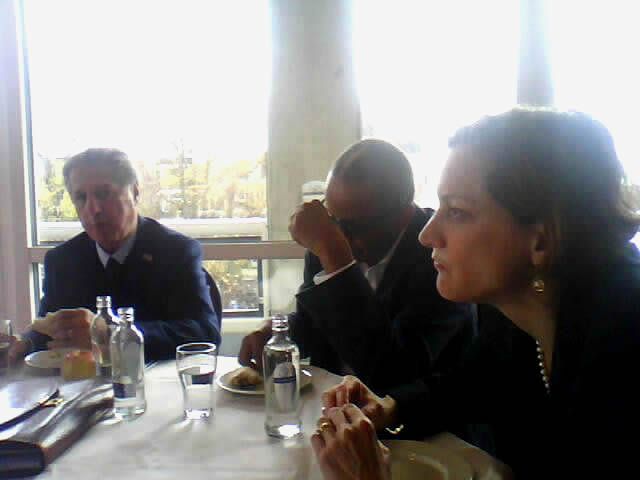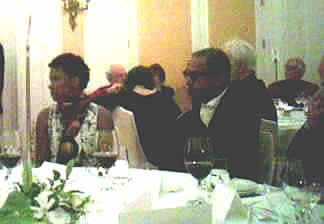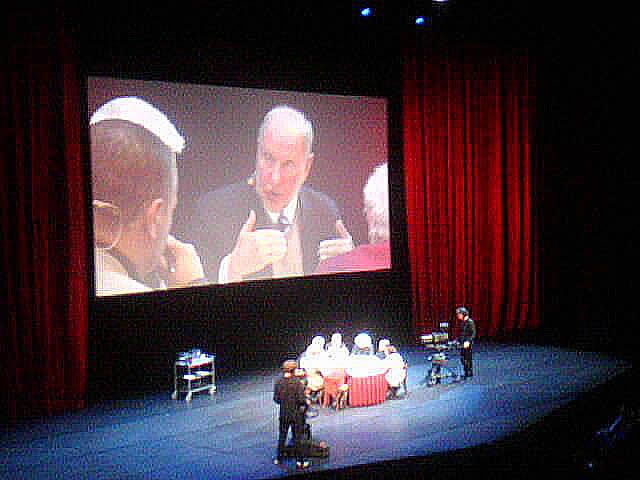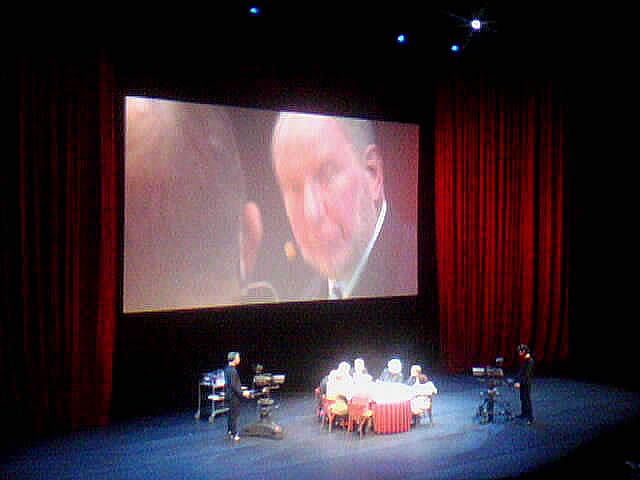The Greek poet Constantine Cavafy portrays a fictional city grown decadent in times of plenty within a Roman Empire, in which the emperor, senators, rhetors and citizens almost eagerly look forward to the arrival of the barbarians. Then the barbarians do not come, and the disappointment is felt deeply. Cavafy’s description of this imaginary city ends with the following haunting lines:
And now, what’s to become of us without barbarians.
Those people were a solution of some kind.
(Translated by Daniel Mendelsohn)
The arrival of the barbarians would have offered a way out of the spiritual emptiness, lethargy, boredom and laziness that the city had fallen prey to. Poetically, Cavafy has illustrated the argument put forward by Edward Gibbon in his superb historical epic The Decline and Fall of the Roman Empire (1788): that Roman civilization primarily withered as a result of decay from within, waiting for the barbarians that eventually came. The Nexus Conference 2015 addresses this theme within our society: how powerful is our current ideal of civilization?
In 1794, in his eighth letter in On the Aesthetic Education of Man, while enjoying the blossoming of a new European civilization, the result of Enlightenment ideals coming to fruition, Friedrich Schiller unexpectedly posed a painful question: ‘Whence then is it that we remain still barbarians?’ A few decades later, his old friend Goethe gave the following answer in a conversation with Johan Peter Eckermann in 1831: ‘[the historian Barthold] Niebuhr was right in predicting an era of barbarism. It is already here and we are in the midst of it; for wherein does barbarism consist unless in not appreciating what is excellent?’ A few years later, in Democracy in America (1840), Alexis de Tocqueville observed: ‘Because Roman civilization perished through barbarian invasions, we are perhaps too much inclined to think that that is the only way a civilization can die.’
Innocent people, who are beheaded or burned alive in front of running cameras – and these atrocities are thereupon sent into the world for everyone to see; editors, who are murdered in cold blood for their satirical cartoons; fanatics, who torture and desire to die as martyrs for their cause. Modern slavery, organized rape, a superpower that invades other states for more Lebensraum. We hear the news of so much cruelty, so much violence, so much barbarism in disbelief, disgust, bewilderment and fear. Our European history is similarly marked by bonfires, guillotines, torture and martyrs, sla- very and raids; but this is past, it happened long ago, it is over. We are proud to be civilized.
At least, so we think. Just as we thought at the beginning of the twentieth century, when European culture reached its zenith and we were completely unaware of how easily and how quickly European civilization would enter the realms of the greatest barbarity. A savagery, to which the most uncon- ceivable evil of Auschwitz and the Gulag will always be connected. And to this day, we still do not really understand, we still do not really have an answer to the questions that Max Horkheimer, Theodor Adorno, Thomas Mann, Albert Camus and George Steiner were bound to ask: how come that a developed civilization may lapse into new forms of barbarism? Whence this evil? Whence nihilism? How come that the humanities failed to humanize us? What went wrong with reason?
Only a few months before his voluntary death, Primo Levi wrote two paragraphs in The Drowned and the Saved (1986) that now read as his testament, a testimony and warning to those among us, who consider themselves living in a civilized society:
For us to speak with the young becomes ever more difficult. We see it as a duty, and at the same time as a risk: the risk of appearing anachronistic, of not being listened to. We must be listened to: above and beyond our personal experiences, we have collectively been the witnesses of a fundamental, unexpected event, fundamental precisely because unexpected, not foreseen by anyone. It took place in the teeth of all forecasts; it happened in Europe. Incredibly, it happened that an entire civilized people, just issued form the fervid cultural flowering of Weimar, followed a buffoon whose figure today inspires laughter, and yet Adolf Hitler was obeyed and his praises were sung right up to the catastrophe. It happened, therefore it can happen again: this is the core of what we have to say.
It can happen, and it can happen everywhere. I do not intend to nor can I say that it will happen; as I pointed out earlier, it is not very probable that all the factors that unleashed the Nazi madness will again occur simultaneously but pre- cursory signs loom before us. Violence, ‘useful’ or ‘useless’, is there before our eyes: it snakes either through sporadic and private episodes, or government lawlessness, both in what we call the first and second worlds, that is to say, the parliamentary democracies and countries in the Communist area. In the Third World, it is endemic or epidemic. It only awaits its new buffoons (there is no dearth of candidates) to organize it, legalize it, declare it necessary and mandatory and contaminate the world. Few countries can be considered immune to a future tide of violence generated by intolerance, lust for power, economic difficulties, religious or political fanaticism, and racialist attritions. It is therefore necessary to sharpen our senses, distrust the prophets, the enchanters, those who speak and write ‘beautiful words’ unsupported by intelligent reason.
Translated by Raymond Rosenthal
Mindful of these words and of the critical observations by Schiller, Goethe and De Tocqueville, we would be wise not to let us solely be dazzled by the barbaric conditions at the borders of Europe for the survival of our civilization. Rather, we need to start asking ourselves some uncomfortable and critical questions. |
